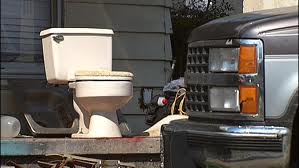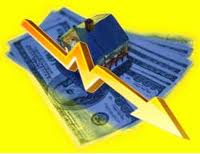
Bad neighbors with annoying pets, unkempt yards, unpleasant odors, loud music, dangerous trees and limbs, or poorly maintained exteriors can cost homeowners big time. The Appraisal Institute today cautioned homeowners and potential homebuyers that bad neighbors can significantly reduce nearby property values. The Institute advised owners and buyers to walk streets neighboring a property on several days at various times to learn more about what is happening in the neighborhood. A home’s proximity to a bad neighbor also can impact the rate of potential decline in value. “I’ve seen many situations where external factors, such as living near a bad neighbor, can lower home values by more than 5 to 10 percent,” said Appraisal Institute President Richard L. Borges II, MAI, SRA. “Homeowners should be aware of what is going on in their neighborhood and how others’ bad behaviors could affect their home’s value.” Appraisers refer to this as “external obsolescence,” which is depreciation caused by external factors not on the property. Exter

nal obsolescence may be caused by economic or locational factors, and may be temporary or permanent, but it is not curable by the owner, landlord or tenant. The Appraisal Institute urges homeowners to take the following steps when dealing with troublesome neighbors:
- Speak with other neighbors. Get consensus when identifying issues, and approach the bad neighbor together.
- Look up original and updated subdivision restrictions. If talking to the neighbor doesn’t work, see if they’re violating any restrictions. If so, writing to the code office of the municipality and reporting the bad neighbor could spur an investigation into the nuisance. Depending on the offense, a call to the local health department also may be warranted.
- Hire an attorney. If all else fails, the cost of an attorney likely will be less than the home’s potential loss in value.
“Even though homeowners do have some recourse, it’s important for prospective homebuyers to carefully examine the neighborhood where they’re considering living,” Borges said. “That way they can hopefully prevent any problems in the first place.” Potential homebuyers also should be aware of a property’s proximity to commercial facilities, such as power plants and funeral homes, as these also can negatively affect a home’s value. .
 Bad neighbors with annoying pets, unkempt yards, unpleasant odors, loud music, dangerous trees and limbs, or poorly maintained exteriors can cost homeowners big time. The Appraisal Institute today cautioned homeowners and potential homebuyers that bad neighbors can significantly reduce nearby property values. The Institute advised owners and buyers to walk streets neighboring a property on several days at various times to learn more about what is happening in the neighborhood. A home’s proximity to a bad neighbor also can impact the rate of potential decline in value. “I’ve seen many situations where external factors, such as living near a bad neighbor, can lower home values by more than 5 to 10 percent,” said Appraisal Institute President Richard L. Borges II, MAI, SRA. “Homeowners should be aware of what is going on in their neighborhood and how others’ bad behaviors could affect their home’s value.” Appraisers refer to this as “external obsolescence,” which is depreciation caused by external factors not on the property. Exter
Bad neighbors with annoying pets, unkempt yards, unpleasant odors, loud music, dangerous trees and limbs, or poorly maintained exteriors can cost homeowners big time. The Appraisal Institute today cautioned homeowners and potential homebuyers that bad neighbors can significantly reduce nearby property values. The Institute advised owners and buyers to walk streets neighboring a property on several days at various times to learn more about what is happening in the neighborhood. A home’s proximity to a bad neighbor also can impact the rate of potential decline in value. “I’ve seen many situations where external factors, such as living near a bad neighbor, can lower home values by more than 5 to 10 percent,” said Appraisal Institute President Richard L. Borges II, MAI, SRA. “Homeowners should be aware of what is going on in their neighborhood and how others’ bad behaviors could affect their home’s value.” Appraisers refer to this as “external obsolescence,” which is depreciation caused by external factors not on the property. Exter  nal obsolescence may be caused by economic or locational factors, and may be temporary or permanent, but it is not curable by the owner, landlord or tenant. The Appraisal Institute urges homeowners to take the following steps when dealing with troublesome neighbors:
nal obsolescence may be caused by economic or locational factors, and may be temporary or permanent, but it is not curable by the owner, landlord or tenant. The Appraisal Institute urges homeowners to take the following steps when dealing with troublesome neighbors:



